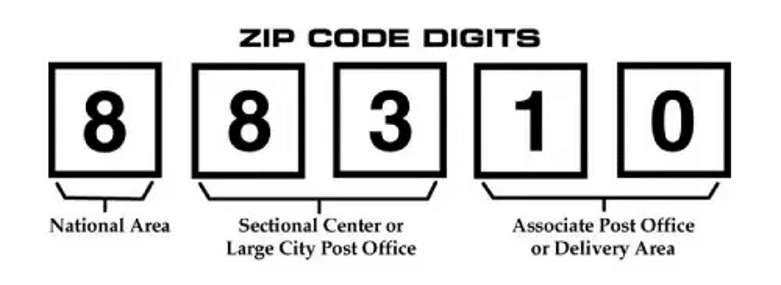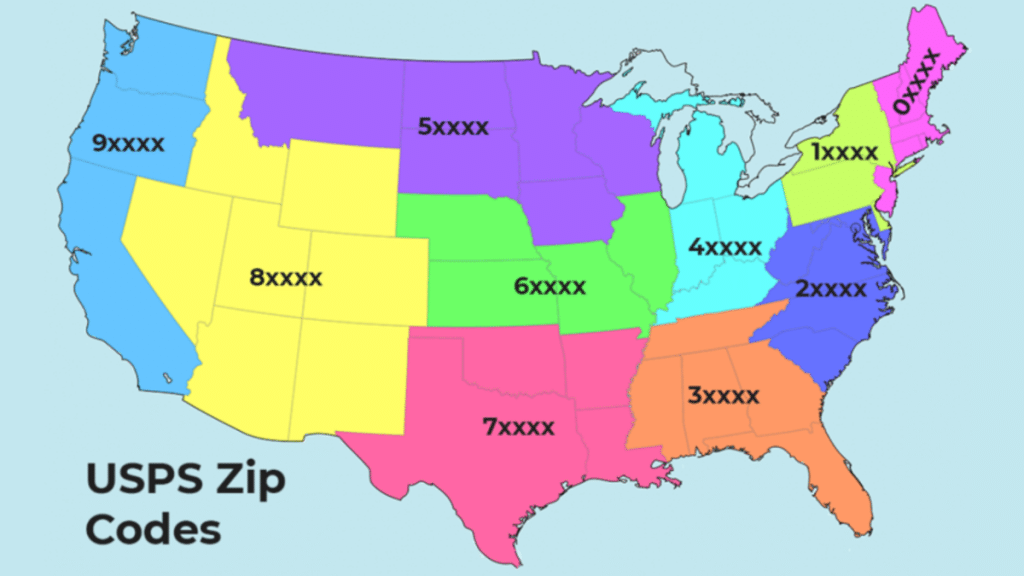Postal codes are vital to contemporary communication, facilitating smooth connections between people, organizations, and governments. They also organize postal delivery networks and increase the effectiveness of international logistics operations.
However, what exactly is a postal code, what is my ZIP code, and why is it so important in the modern world? Let’s take a closer look at the function and workings of postal codes, including how they can help you determine the correct ZIP code for any given address.
What is a Postal Code?
A postcode is a combination of symbols, numbers, or letters used to help sort postal items. In other words, it is a cipher that contains information about the country, region, city, and number of the post office where a parcel, parcel post, or letter is to be delivered.
Different countries have their own designations, which may contain numbers, letters, and hyphens. Most national postal services (in 192 countries) use an index today.
Postal codes are crucial for internet shopping, emergency services, and even identifying regional demographics. They are not only used for traditional letter delivery. The purpose of zip codes is to assist governments in effectively allocating resources and enable companies to pinpoint their target markets.
The Important Role of the Postal Codes
No matter whether a parcel or a letter is being sent to the addressee, the sender must provide the exact address of the person to whom it is being sent. This is to ensure that there is no delay in delivery or that what is sent does not arrive at a different address. Each address is sorted by postcode; if correct, a special machine will distribute parcels and letters accurately. If the wrong postcode is written, what is sent will be sorted to another neighborhood or city and will not reach the addressee. An accurate postcode plays a very important role.
Beyond just carrying letters, ZIP codes and other postal codes have various purposes. They are essential for the following main reasons:
- Effective mail distribution: Postal codes facilitate precise and speedy mail sorting and routing.
- Location identification: Postal codes are used by companies and organizations to confirm addresses and stop fraud.
- Service accessibility: Postal codes are crucial for accurate service delivery. Utilities, emergency services, and other vital infrastructures depend on postal codes.
- Online transactions: Many websites require a valid postal code to complete user registration or checkout procedures.
If you’ve ever asked yourself, “What is my ZIP code?”, there’s a simple way to find out. Tools like CleverUtils’ ZIP Code Finder can help you identify the postal code for any location with ease.
How Do Postal Codes Work?
Postcodes are used to keep track of postal items. Simply put, they are a special code assigned to each post office. They must ensure that parcels and letters sent to the office are delivered to the addressee in one piece. The index consists of digits that encode:
- Country
- Region
- City
- Post office

Without the sender’s index, the automatic program will not be able to determine which post office the address belongs to; it must use the index of the post office closest to the address. You can determine the addressee index using special services on the Internet.
Each segment of a postal code carries specific information:
- General area: The first digits often denote a city or large regional zone.
- Local zone: Subsequent digits narrow it down to a smaller area, such as a neighborhood or block.
- Delivery point: In some systems, the last part of the code specifies an individual address or business.
How to Find Your Post ZIP Code
Thanks to online tools, finding your postal code has never been easier. Knowing your post ZIP code is essential whether you’re mailing a package, filling out a form, or locating a business. If you need to determine your ZIP code quickly, visit CleverUtils’ ZIP Code Finder. The tool simplifies the process and ensures accurate results.
Why Postal Codes Matter in a Connected World
Postal codes, including ZIP codes, are crucial for global communication and logistics. They ensure mail reaches its destination, facilitate online transactions, and help governments and businesses function smoothly. If you ever need to ask, “What is my ZIP code?” tools like Clever Utils can provide the answer in seconds.
By understanding how postal codes work and their importance, you can appreciate the intricate systems that keep the world connected.
